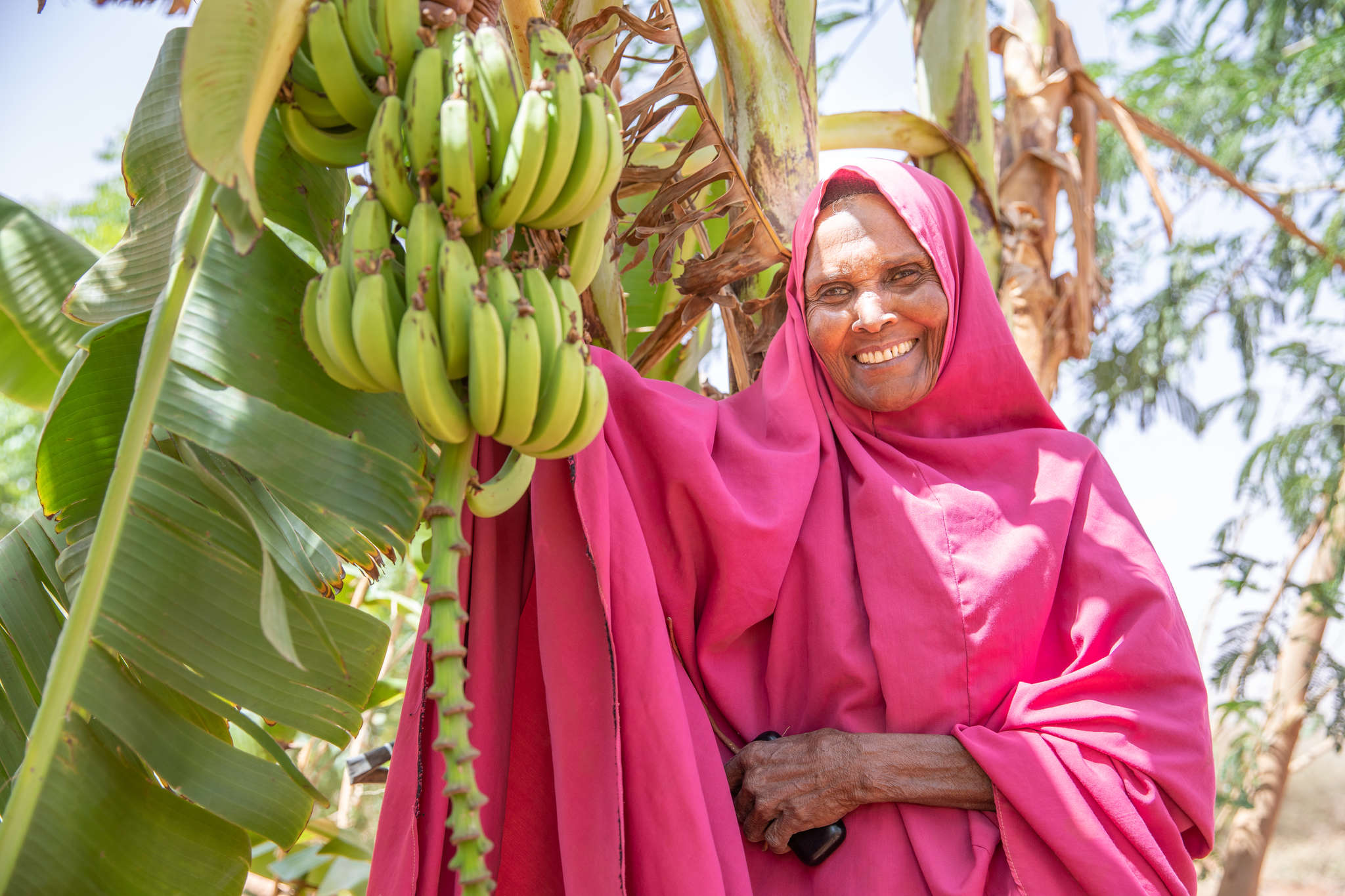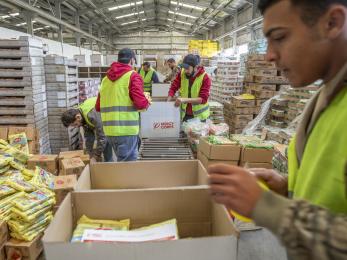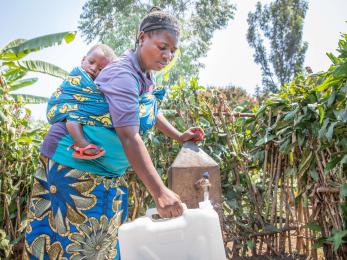7 crises we're watching in 2019
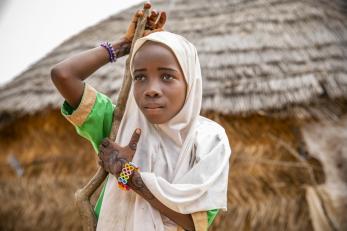
No corner of the world has been untouched by crisis. From Yemen and Afghanistan to Nigeria and the Democratic Republic of Congo, the challenges have never been greater.
But thanks to your support, we’ve never been better prepared to meet them.
We reached nearly 28 million people last year, including millions of families struggling to survive on the front lines of conflict and disaster. Now our work continues. Whether brought on by war, natural disaster, or climate change, here are seven crises we’re watching closely in 2019.
1. Yemen crisis
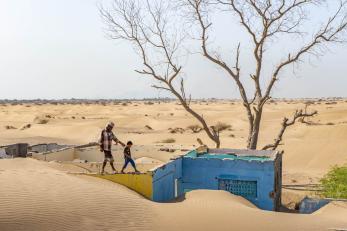
The numbers are staggering. The conflict in Yemen has left nearly 18 million people without reliable access to food and 16 million people without safe water. The country is on the brink of famine, in the midst of the worst cholera outbreak in recorded history, with an economy on the edge of collapse.
We're helping families survive this crisis in as many ways as we can, including emergency cash, cash-for-work programmes, water rehabilitation, and job skills training. Learn more about our work in Yemen here.
2. Ebola in Democratic Republic of Congo
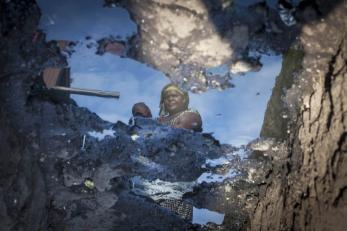
The Democratic Republic of Congo is currently facing the second-largest Ebola outbreak in history, a problem made worse by widespread conflict and governance challenges. With massive populations in need, a proliferation of armed groups, and elections under dispute, the Ebola outbreak threatens to cross borders and become a regional health crisis that could cripple other fragile locations.
We're responding at the epicentre of the outbreak, promoting infection prevention and conducting health and hygiene campaigns in health facilities, schools and other public spaces. Read more about our Ebola response here.
3. Nigeria conflict
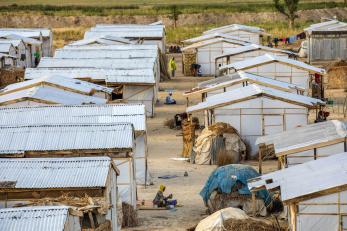
The ongoing threat from Boko Haram only exacerbates the significant ethnic and religious violence in Nigeria. At the peak of the crisis, more than 2 million people were displaced and 7 million needed humanitarian assistance. Income inequality and conflict over diminishing natural resources compound the country’s fragility.
We're helping people recover with livelihood grants, savings groups, safe spaces for youth, peacebuilding initiatives, and community conflict management.
How one woman is rebuilding after Boko Haram ▸
4. Syria conflict
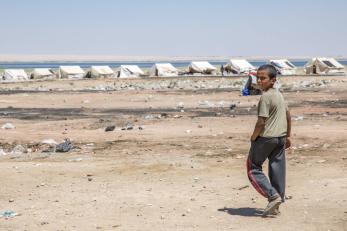
As the war in Syria grinds into its eighth year, the dynamics have changed, but the challenges remain. Entire communities in difficult or cut-off areas still need life-saving assistance due to ongoing conflict. In pockets where fighting has ceased, people are struggling to recover their livelihoods, heal deep community rifts, and begin hosting those who are returning home.
5. Venezuelan refugees in Colombia
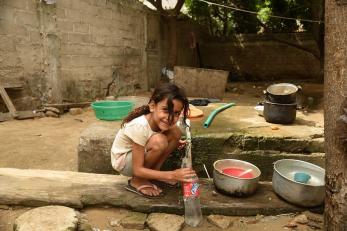
For several years, Venezuela has been hurtling toward economic, social and institutional collapse. Today the crisis has spurred Latin America’s largest mass migration in modern times; the numbers of displaced people could soon match Syria.
We've scaled up our work in Colombia to help meet the urgent needs of thousands of displaced Venezuelans through relief like emergency cash and access to medicine. Learn more about our work in Colombia here.
6. Afghanistan conflict
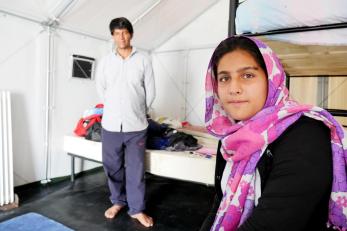
Afghanistan is one of the world’s deadliest conflicts; in 2018, nearly as many people died of conflict in Afghanistan than in Syria and Yemen combined. Most of the country is in either Crisis or Emergency levels of hunger, and USAID’s Famine Early Warning System estimates that as many as 4.9 million people are in need of food assistance. In total, more than 6 million people require some form of humanitarian and protection assistance.
We work with farmers to diversify what they grow and increase their profits. We’re also providing humanitarian relief, renewable energy, and youth job skills.
7. Natural disasters in Indonesia
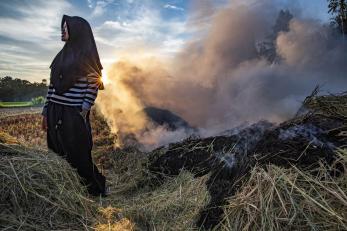
Indonesia was hit with repeated natural disasters in 2018, including multiple earthquakes on the island of Lombok and a tsunami on the island of Sulawesi that killed more than 2,000 people and displaced 130,000. Natural disaster is a constant threat in this part of the world — Asia experienced more than 400 natural disasters in the region last year, which affected 27 million people.
We were on the ground following the Sulawesi tsunami, distributing solar lanterns, hygiene kits, cooking kits, shelter kits, cleaning kits, and safe drinking water. Our work with farmers is helping them grow more food and strengthen their families in the face of climate change.
